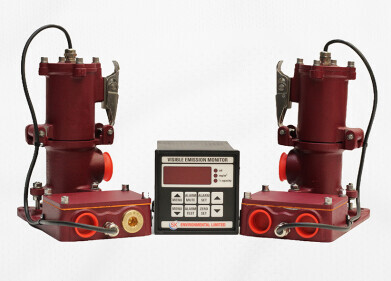Air Monitoring
Could wearing clean clothes also clean the air?
Oct 02 2012
University of Sheffield and London College of Fashion have joined forces to invent a pollution busting laundry-additive.
The additive, which merely needs to be washed into clothes, will be called CatClo.
It contains microscopic particles which eat pollution in the air they are released into by the wearer.
These nanoparticles are made up of titanium dioxide. Because of their size, the particles have the ability to grip onto fabrics very tightly. The potency of titanium oxide means that clothes only have to be washed in CatClo once to have continual effects.
Purification is achieved when the particles react with nitrogen oxides in the air.
"The nitrogen oxides treated in this way are completely odourless and colourless and pose no pollution hazard as they are removed harmlessly when the item of clothing is next washed, if they haven’t already been dissipated harmlessly in sweat," Professor Tony Ryan, from the department of chemistry at the University of Sheffield says.
The aims of these two universities are certainly ambitious. CatClo is intended to remove around 5g of nitrogen oxides from the air in the course of an average day, per wearer.
5g of nitrogen oxides is roughly the amount released every day by a family car, rendering the potential influence of CatClo vast.
"If thousands of people in a typical town used the additive, the result would be a significant improvement in local air quality", says Professor Ryan.
"This additive creates the potential for community action to deliver a real environmental benefit that could actually help to cut disease and save lives. In Sheffield, for instance, if everyone washed their clothes in the additive, there would be no pollution problem caused by nitrogen oxides at all."
Effects of CatClo could begin in just two years, when both universities hope that the development of the product should be fully finished.
"We’re now working closely with a manufacturer of environmentally friendly cleaning products to commercialise our laundry additive," says Professor Ryan.
Posted by Claire Manning
Digital Edition
IET 34.2 March 2024
April 2024
Gas Detection - Biogas batch fermentation system for laboratory use with automatic gas analysis in real time Water/Wastewater - Upcycling sensors for sustainable nature management - Prist...
View all digital editions
Events
May 03 2024 Seoul, South Korea
May 05 2024 Seville, Spain
May 06 2024 Minneapolis, MN, USA
May 13 2024 Munich, Germany
May 15 2024 Lund, Sweden


















